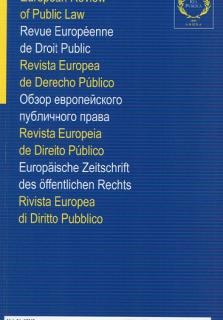
Administrative Law / Droit administratif
SERBIA / SERBIE
ALEKSANDRA ČAVOSKI
Prof. Dr., Teaching Fellow, Birmingham Law School, University of Birmingham, UK
One of the issues that was discussed in 2012 both within the Government and in the media was the role and the functioning of the independent agencies in Serbia which were set up in accordance with the Public Agencies' Act in 2005. The creation of public agencies was a response to an increasing need for specialised and regulatory bodies able to provide services in a more approachable, transparent and cost-efficient manner. Despite the initial enthusiasm about this new administrative form, public agencies very soon became controversial. This can be explained by an instant increase in the number of agencies, their financing and the fact that agencies became a safe haven for employing political cronies. Even though the ambitious initial plans involved the closing down of many agencies, the Government abolished only some agencies in 2012 without objectively assessing their scope of work, their performance results and relevance in transposing the EU acquis.
L'une des questions discutées en 2012 en Serbie au sein du gouvernement et dans les médias a été le rôle et le fonctionnement des organismes indépendants créés conformément à la loi de 2005 sur les organismes publics. La création d'organismes publics répondait au besoin croissant d'organismes de contrôle spécialisés capables de fournir des services d'une manière plus facile, transparente et peu onéreuse. Malgré l'enthousiasme initial envers cette nouvelle formation administrative, certains organismes publics ont très vite suscité la controverse. Cela peut s'ex¬pliquer par l'augmentation très rapide du nombre d'organismes, leur financement et le fait qu'ils sont devenus une sinécure pour les amis politiques. Bien que les ambitieux plans initiaux aient prévu la fermeture de nombreux organismes, le gouvernement n'en a aboli que quelques-uns en 2012, sans évaluer objectivement l'étendue de leur œuvre, leur rendement et leur pertinence dans la transposition des acquis européens.





















